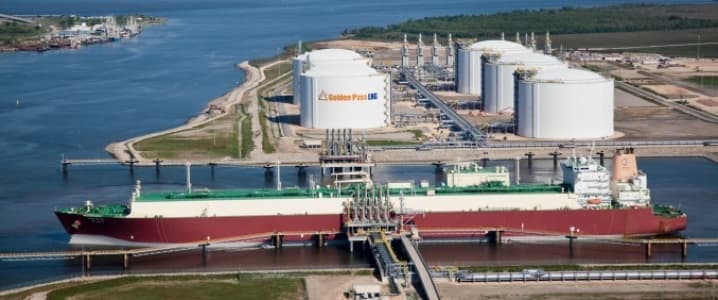The advent of super oil tanker ships and giant freight carriers, along with upcoming rules on sulfur used in marine vessel fuel, are expected to influence demand and pricing in bunker fuel and crude oil.
Port authorities all over the world are overseeing redesigns at their harbors and crane systems as much larger ships begin showing up. Massive carriers are aiding steadily increasing shipment volumes of cargo containers and tankers full of crude oil and fuels.
It’s also driving change in making ports more efficient and logistically advanced, to avoid keeping ships lined up for miles at sea; and highways clogged with drayage and heavy-duty transport trucks moving cargo. Port authorities are exploring options such as new methods to stack and distribute cargo containers, and to reduce some of the truck traffic through using more rail transport.
A new study by credit ratings agency Fitch forecasts that throughput at ports will eventually slow down, even though cargo shipping has seen sizable growth in recent years. Africa, Asia, the Pacific islands, and Latin America, have seen cargo shipments expand at their ports. Fitch reported a 3.6 percent increase in port throughput during the first quarter of this year.
Traffic growth in ports is likely to drop below historic levels in the near future due to fundamental structural changes in the industry and global trade, according to the report. Key factors include China’s growing domestic market, shifting global supply chains, and maturing technology in the container shipping industry.
Massive crude tankers are still in an early phase, but like giant cargo ships, they will become more common in the near future. In May, Occidental Petroleum successfully navigated a super tanker into the Port of Corpus Christi without any oil in its tanks. It was an experiment the oil company conducted to prepare for the future of oil shipping. Related: Daily OPEC Oil Prices Now Public For The First Time Ever
Occidental Petroleum used a French vessel that was about 1,100 feet long and 200 feet wide. It’s considered to be the largest oil tanker ever to enter a port in the Gulf of Mexico.
Ports are preparing for welcoming much larger tankers, with some of that change being driven by Panama Canal’s recent expansion and a repeal of the ban on foreign crude exports from the U.S. that goes back to December 2015.
Oil shipments saw economic instability last year as super tankers become more common, with freight rates fluctuating. The influx of large tankers and slowing oil demand last year had their impact.
As far as bunker oil used in marine vessel fuel is concerned, the price will be going up. New international regulations are set to be implemented and enforced starting in 2020 that will limit sulfur used in marine vessels. Refiners and ship operators will have to make operational decisions that factor in the expected price increase.
Sulfur used in transportation fuel has been declining for several years in the U.S. due to changes in federal and state regulations reducing the sulfur content in vehicle gasoline and diesel fuel and in heating oil. Rules will expand to international markets in 2020, limiting the amount of sulfur that can be used in bunker oil. Related: New Solar Tech Produces 50% More Energy Than Silicon Cells
These new rules are driven by concerns over environmental impacts of sulfur in the fuel. The shipping industry is by far the world's biggest emitter of sulfur. Sulfur oxide (SOx) in heavy maritime fuel oil can be 3,500 times higher than the latest European diesel standards for vehicles.
The ports of Los Angeles and Long Beach, the two largest seaports in the U.S., just passed a comprehensive plan to slash truck emissions, increase rail access, and make freight movement more efficient.
The ports of LA and Long Beach now plan to have trains move 50 percent of all the goods leaving the ports. That will double the current level of rail transport being used these days.
Trucking firms, and those selling them diesel fuel, will likely have serious concerns over the future of how cargo and oil will be shipped through ports and across the country. Other ports are influenced by what happens at the nation’s two largest harbors.
By Jon LeSage for Oilprice.com
More Top Reads From Oilprice.com:
- The Abrupt Demise Of Dutch Gas
- Is Big Oil Betting On The Wrong Horse?
- Why Oil Prices Aren’t Going Anywhere

















